The Fiction of Moderate Islam in Three Acts
Dear West: You can be Islamic. You can be Woke. You can respect constitutional governance. Choose one.
This post is too long for an email—it features a number of photos—so feel free to click on the title and go to the website to get access to the whole thing.
Act One – In which enablers in the West agitate for genocide
Act Two – In which enablers in the West ban political parties and politicians but coddle Islamists
Act Three – In which the leadership in West Africa gets it
* * *
Act One – In which enablers in the West agitate for genocide
It’s a Saturday afternoon, and I flip on the radio. It is tuned to National Public Radio, the infamous NPR.
This was many, many years ago. 2006? On that Saturday afternoon, the United States was still absorbed in the great project of transforming Mesopotamia (Iraq) into “a shining city on a hill,” a bastion of liberal, democratic ideals. Some thousands of earnest, well-intentioned (and brave and mostly young) Americans perished in the effort. Some hundreds-of-thousands (at least) of Iraqis perished in the inter-tribal fighting that succeeded the ouster of the regime of Saddam Hussein. The Iraqis may or may not have been fighting to promote democratic ideals, but, with the security apparatus of the former regime having been taken out, fighting between tribalistic factions could take up where it had last left off in, say, the immediate aftermath of the 1991 Gulf War.
On that Saturday afternoon in 2006, I found myself tapping into an interview about “moderate Islam.” You know, Moderate Islam™, an antidote and substitute for Islamic extremism.
The interviewee projected a silky, soothing presence. I enjoyed the timbre of his voice. He spoke optimistically of “Moderate Islam.” But, admittedly, I can’t remember him saying anything memorable or interesting about the concept. But, Moderate Islam!
I bring this up, because, we’ve been hearing some more utterances about “Moderate Islam” these last few months. Like, the new leadership of the failed state of Syria: They may be jihadis, but they’re our jihadis; they’re much the same “moderate” jihadi factions the United States had been funding back in, say, 2015, when the US had been intent on deposing the regime of Bashar al-Assad.
But back to 2006: The big surprise came at the end of the interview. The interviewee, I came to understand, was So-and-so who then occupied a senior position at some institute or other at Georgetown University. About 15 years earlier, this same fellow and myself had subletted adjacent rooms for the summer at a house in the Glover Park neighborhood of Washington, DC. Glover Park is situated just north of Georgetown.
My old friend was (and is) a very dynamic fellow. As he explained to me way back that summer, his parents were peasant farmers tucked away in some village in Egypt. Illiterate, but wise. My friend had complained once about the current leadership of Egypt. Everyone at the top was so corrupt; wouldn’t it be great to get rid of these people!? But, the father suggested that these people had already filled their pockets. Replacing them would merely amount to replacing them with people with empty pockets. The leadership of a new regime would merely rob the country anew. Don’t be too quick to swap out one kleptocratic regime with another. Wise.
Many years earlier, my friend had managed to secure the second highest score in his cohort on high school exit exams in Egypt. This magnificent performance put him on a new, shining path. I can’t remember the details, but way was made for advanced studies in the Anglo-sphere for such a promising young fellow. Well done, Anglo-sphere, for identifying genuine talent and elevating it.
At some point, my friend made time to play football (soccer) professionally in Egypt. Dynamic and athletic! Well done.
After that, he bounced around from one graduate program to another. I got to thinking that there are some number of these interesting people who just kind of bounce around. Do they ever settle down?
On many sultry summer evenings in DC, we would talk politics. Or, rather, I asked lots of dumb questions about Egypt and got some interesting answers. We paid our rent over three months to a fellow named Max Weber. Really.
So, about politics: My friend presented himself as a “Communist,” although I admit to still having problems understanding what Communism really entails in countries that have the damnedest time producing wealth. When everyone’s poor, everyone is still poor whether or not one is a free-market Capitalist or a Communist. Does being a Communist really mean anything? What are you talking about?
I didn’t ask. I just let that one slide, although these many decades later I would have some better informed question to pose.
My friend was a big admirer of Gamal Abdel Nasser. One very good reason was that it was Nasser who had first instituted the high school exit exams. Well done, Nasser, for coming up with a meritocratic process for identifying certain types of talent.
I can’t remember anything specific about our discussions that summer about the West Bank and Israel, but I can remember my friend excusing himself one evening from our discussion. He explained that he had become “very upset.” I didn’t press the matter.
My recollection is that we had been talking about the ‘67 war. It was through that affair that Egypt lost the Sinai peninsula to Israel.
It was also through the very short course of the ‘67 war that Israel managed to overrun the “West Bank.” The “West Bank,” recall had been a part of Jordan and comprises area west of the Dead Sea and the Jordan River—basically Judea and Samaria. The river corresponds to “From the River to the Sea, Palestine will be free!”
It is too bad that I do not remember our discussions about the West Bank, because this was the time when the original Intifada was kicking off. My thinking about the Israeli/Palestinian affairs at that time concentrated on the question of whether or not the West Bank could ultimately comprise a Palestinian state. This was the “Two-State Solution” in its chrysalis.
The West Bank concept as a Palestinian State blew up ten years or so after my Egyptian friend and I had made contact with the matter on sultry, summer evenings in DC. The Two-State Solution blew up, because the Palestinian Liberation Organization (PLO) and its leader, Yasir Arafat, blew it up. Take Bill Clinton’s word for it.
I can remember seeing video of a meeting at Camp David that Clinton had mediated between Ehud Barak and Yasir Arafat. Arafat appeared to me to merely be “going through the motions.” That was my gut sense.
What had he been thinking? That the deal on the table was really very good, but “the Arab Street” wouldn’t go for it?—because anything short of killing all of the Jews of the Levant and thereby redressing all of the self-inflicted military humiliations since 1948 would not suffice? He knew all along that this Camp David business was just theater? I don’t know.
With all of this business of “Moderate Islam” (which is nonsense) emerging these last few weeks, I found myself wondering what my old friend had been up to. He now runs an outfit in London that nominally does stuff, but (I’ve discovered) he makes quite a point of posting cryptic comments on the X platform. He posts stuff about the “genocide” in the Gaza. He posts very lazy stuff. And I am disappointed.
I love this man. He is a great man. But he wastes his great talents on the ugliest stuff. What happened to you?
What do I mean by “lazy”? There is a great mass of commentators who distinguish themselves by never taking the time to stake out a vision of how the world should work. They merely point out bad stuff without context. Bombs drop. People die. A very bad business. But, if the leadership in the Gaza wanted the fighting to stop, the bombing to stop, they could stop it. But they choose not to. Indeed, there would have been no fighting in Gaza had the morning of Saturday, October 7, 2023 unfolded like the morning of Saturday, September 30, 2023.
These people, mostly observers in the West, never take the time to lay out a vision of how the world should work, because they know that much of the world would not go along with that vision. They know that their vision does not conform to live-and-let-live, liberal democratic values. They know that their concept conforms to the totalitarian vision of Bedouin religious fanatics from the 7th century.
I can only conclude, and have long concluded, that the only vision these people can advance is genocide. They launched an attack on October 7, 2023 that (it turns out) they had hoped would inspire others to rise up and help them cleanse Israel. And the Israelis fought back. And are fighting back. But, observers in West demand that the Israelis not fight back.
The evidence, as I said, is that the jihadis expected their attack would inspire others to join them in the cleansing—the genocide of Jews—in Israel.
They failed. They will yet fail, but, right now, what is going on in the Gaza?
I can only guess. Traditionally, wars end by one party imposing a settlement on the other. “Settlement” could be generous. It took the Romans more than a century to vanquish the Carthaginians, and before anyone goes off on the Romans—“What have the Romans ever done for us?”—keep in mind that the alternative from the Romans perspective was to be vanquished by the Carthaginians. The 70,000 dead Romans at Cannae (in Italy) in 216 BC, which included a sizable number of Roman Senators, can attest to the fact that the Carthaginians meant business.
Literally or figuratively, the Romans “salted the earth” in order to put a definitive end to the existentialist threat from Carthage.
In our day and age, Hamas means business. Most of the Gazans support Hamas. Do the math.
So, why haven’t the Israelis metaphorically “salted the earth?” In the world of the post-world war, not too many folks get license to do that. In 2009, the Sri Lankan authorities managed to secure it. They managed to vanquish the Tamil insurgency in the same old way. The “International Community” agitated for a stop to the fighting, but the one last assault would bring 30 years of fighting to an end. There would be peace after one last episode of violence. The International Community would rather, it seems, have seen the Tamil Tigers regroup, rearm and carry on the killing for another 30 years
The business in Gaza is still unfolding. Slowly. I am not sure where it is going to go, but let’s recount how it started.
Long story short: The Oslo Process of 1993 led to the offer at Camp David in 2000. The Palestinians rejected it. By 2005, the Israelis had unilaterally imposed a deal of its own: They’d leave the Gaza and leave it to the Palestinians to govern both the Gaza and the West Bank. (I admit surprise that it was a Likud government led by Ariel Sharon that organized the withdrawal from the Gaza.) The Palestinians even conducted elections—once. Hamas won the elections in Gaza—whatever that really meant—and set about expelling (killing off) the rival Fatah faction. Fatah secured control of the West Bank.
Hamas and Fatah would now exercise an important degree of autonomy over these regions. Autonomy would include regular elections—you know, the stuff of liberal democracy—but the elections of 2006 comprised a one-and-done matter.
Hamas immediately set up the Gaza as a site for indiscriminately launching rockets into Israel. (I have written about this a few times before.) At the same time, they and their cohorts formally set up the BDS campaign (“Boycott-Divestment-and-Sanctions”), and they’ve been shooting rockets into Israel since then. Since 2006. That stuff had been going on for 17 years by the time they had launched the massacre of October 7, 2023.
My old friend from Egypt takes up the rhetoric of many observers. They talk as if history in the Levant began on October 8, 2023, and they complain that the Israelis talk as if history began on October 7, 2023.
All I know is that various parties had much confidence that, as late as 2000, the PLO and the Israelis could cut a robust deal and commit to a “Two-State Solution.” But, that all fell apart, and affairs have reverted to where they were as of 1973 or 1967 or 1954 or 1948. The prospect of a deal fell apart, because the Palestinian leadership made it fall apart. It had demonstrated that it had only been committed to genocide, and it has since been happy to apply $billions in aid from the enlightened West to pursue it.
In the Gaza, those $billions have gone into constructing about 300 miles of tunnels spanning a network of command posts and storage facilities. This infrastructure supports jihad.
The biggest question in my mind is: Why do lazy Westerners enable this?
Act Two – In which enablers in the West ban political parties and politicians but coddle Islamists
Should we not follow the European model and ban political parties that we don’t like?
This kind of question has come up with respect to Gaza. Would, for example, the Trump Administration support a peace deal that enables Hamas to maintain control over the Gaza? Trump says “No.” For now.
Meanwhile, this kind of question has come up almost weekly with respect to politics in the European Union. In Germany, the establishment parties talk about what it would take to ban the upstart Alternative für Deutschland (AfD). The AfD opposes the globalist agenda, and that agenda would include the Energiewende agenda. Energiewende comprises Germany’s “energy transition” program, and that involves raising the costs of energy to the point that Germany’s industrial base has been uprooting itself and setting down new roots in places with cheaper energy like China and the United States. As I understand it, the Ossis (the people of East Germany) have been much less keen about the transition than the Wessis (the people West Germany).
Meanwhile, the Ossis have also been much less keen about unrestricted immigration from the failed states of North Africa and the Middle East. Wessis appear to have been more likely to favor it or, at least, to acquiesce to it.
Were the East-West divide in German politics not obvious, then consider this screen shot of German parliamentary election results from February 23, 2025 (courtesy of DecisionDeskHQ):
AfD is the stuff in blue. AfD secured the second largest presence in the Bundestag.
For some time, the establishment parties and the establishment media have been telling us that the AfD people are Nazis. Of course.
BREAKING NEWS as of the writing of this essay:
The Federal Office for the Protection of the Constitution (in Germany) has declared that the “AfD ist geishert rechtsextremistisch”—the AfD is affirmatively “right wing.” Which means, I think, that the authorities are one step closer to formally banning the party from participating in federal elections.
From Deutsche Welle, an establishment media voice:
Our Democracy™ in action!
Today’s activity in Germany follows news that, in Romania, the establishment had very recently outlawed the candidacy of Călin Georgescu after the first round of still-unfolding elections. Georgescu had won that first round, but his policy preferences are wrong, so he had to be pushed out. Not long after that, the establishment in France managed to ban the leading opposition candidate, Marine LePen, from upcoming elections, because her party’s policy platform is wrong. She had to be pushed out in order to preserve Out Democracy™. Some years earlier, a figure in Italian government, Alberto Salvini, had to be pushed out, because his anti-immigration orientation was inconsistent with the values of Our Democracy™.
Some years ago, Nobel laureate economist Daron Acemoglu (2024) and co-authors put out a paper suggesting how it can be rational for a polity to ban certain political parties Of course, everyone can motivate the idea by illuminating Exhibit A, the Nazis ascension to power in 1932. Not long after their electoral success, the Nazis effectively implemented martial law, thereby conferring extraordinary powers on the Führer.
The idea, surely, is that certain parties must be banned in order to avoid allowing them to exploit the institutions of Our Democracy™ to secure power and then abuse that power. Even so, let me pose the idea that the Nazi experience may have revealed more about the fragility of Continental institutions before the War than about Nazis per se. Perhaps a fundamental problem was not the fact that there was a Nazi party but that there was no effective constitutional governance. Specifically, were there no effective “checks-and-balances” on the executive branch of government such that other factions could have frustrated the executive’s reach for extraordinary powers—powers that it never gave up until forced to give them up with the destruction of Berlin in May 1945? Or, maybe everyone just thought it was a good idea at the time and decided to go along with it? Were there no mechanisms for forcing the surrender of extraordinary powers?
I may get around to assembling an essay that contrasts (1) how, in the common law tradition, the “separation of powers” operationalizes checks-and-balances with (2) how, in civil code (Napoleonic) traditions, “la séparation des pouvoirs” insulates the executive and its administrative agencies from checks-and-balances. Arguably, the latter experience involved the surprisingly conservative project of converting the royal prerogative of the ancien régime into the revolutionary prerogatives of administrative agencies in France after the French Revolution. Letting courts and legislatures get in the way of centralized administration, before or after the Revolution, was not going to be tolerated.
All that said, checks-and-balances really didn’t seem to work anywhere in the Anglo-sphere (the native habitat of common law) during the COVID hysteria and after the COVID hysteria. Perhaps the institutions of Our Democracy™ in the Anglo-sphere have also revealed their fragility.
All that said, a host of efforts are in process to continue eroding those institutions. Those efforts include (I would suggest) long-running campaigns to normalize illegal immigration and campaigns to normalize the implementation of Sharia in communities that have become dominated by Muslim populations. These campaigns support the larger Multikulti project (as Mutti Merkel might have called it).
My own sense that the Multiculturalism project had really achieved escape velocity came to me after having returned from an extended time out of the United States. This was the late 1990’s. I got back, restarted my New York Times subscription, and was struck by the bloat in the self-anointed “paper of record” of vacuous content. There was, for example, this manufactured piece about a cluster of friends of South Asian extraction who curiously mapped into the Seinfeld template. One fellow was kind of like Kramer. Another one was like George. Another, of course, was modeled as the Indian incarnation of Jerry Seinfeld himself. Then there some young lady who filled in the role of Elaine. (I haven’t been able to find the piece online.)
It seems like a small thing, but this odd piece was this “nudge” in the direction of celebrating “diversity.” These people are New Yorkers. But, they’re Indian, and they live like Indians—except they’re like us… or they’re like people who walked off of the Indian set of Seinfeld.
Within a few years of that we got the bitter debate in New York over the Park 51 project. This project involved building a mosque adjacent to “Ground Zero,” the site formerly occupied by the World Trade Center buildings. Some opponents of the project observed that building a mosque amounted to a traditional expression of Muslim triumphalism: build mosques on the ruins of a vanquished enemy’s holy sites! New York mayor Michael Bloomberg dismissed the opposition as “racist!” The Park 51 people quickly picked up on that language.
Park 51 repackaged its project as an “Islamic community center in Lower Manhattan,” a mosque by another name. It opened in 2011 “to glowing reviews, comprehensive community support and favorable media attention.” No doubt.
Meanwhile, while the Park 51 people were repackaging their mosque as a “community center,” the New York Times found itself doing things like repackaging certain Islamic practices that others had framed as “honor killings.” In Gray Lady Down (2010), William MacGowan took up a matter reported in the Times about a “Muslim wife-killing” in Buffalo, New York:
The Times took a week to report the story, and then refused to use the words “beheading” or “decapitation,” instead delicately noting that police found the woman’s head “separated” from her body. Although the case, in tandem with the honor killings of the previous year, cried out for a follow-up or a trend story, there was none. Instead, the Times showed its ideological aversion to saying what really occurred by echoing Islamic advocacy groups who insisted that such violence had no place in their religion and that the murder had to be understood merely as a form of “domestic abuse,” as Liz Robbins’ account put it.
I have found a version of the article (or a follow-on article?), and I say “version,” because it appears to have been edited in response to the fact that “Readers commenting on the Times Web edition didn’t buy it.” But, the repackaging gets better. The revised article opens, “A man who founded a Muslim American television station to help fight Muslim stereotypes is to appear on Wednesday in a suburban Buffalo court on charges that he decapitated his wife last week.”
Fighting stereotypes one beheading at a time. But, it gets better, yet. National Public Radio piped in, “Buffalo Muslims Battle Stereotype After Murder.”
The NPR piece is interesting in that it tamps down the idea that the murder conformed to a practice “sanctioned” by Islam, but it did close with the proposition that “Domestic abuse had been an issue in the immigrant and Muslim communities of Western New York all along.”
But according to Kathy Jamil, the principal of a local Islamic school, it was something that was kept under wraps.
No one wanted to admit it was a problem, “but when this happened everyone wanted to respond — they had to respond — because it became really real for them,” she said. “I think a lot of that was because Islam was under attack.”
Whatever the motivation, leaders in the community began setting up town hall meetings and discussion groups.
“There were trainings for imams, training for the community,” said Suzanne Tomkins, who founded the Social Justice Clinic at University at Buffalo Law School. “They brought in national and other speakers to talk about this issue. And we're starting to see a great deal more collaboration.”
An important feature of this episode is that it got folded into legal process. That process did not correspond to a carve-out for Sharia law. I say this, because we keep hearing noises about how, perhaps, we should make accommodations, formal or informal, for religious “communities” to process issues within those communities in the old ways imported from wherever. (I note that this would include the appeals of Jared Kushner to process legal matters within his own religious community through traditional religious channels.) We really shouldn’t demand constitutionally-mandated “due process!” That would be racist, at least with respect to the Islamic community. But, you can see the problem: Sharia is not compatible with constitutional governance whether in the United States or Britain or (I would venture) in Germany. And, yet, here we are decrying the manufactured nonsense of “Islamophobia” and appealing to Islamophobia and racism as the basis for banning the political participation of people who speak up against the normalization of Islamic practice in Western societies. Multiculturalism!
Act Three – In which the leadership in West Africa gets it
More than a few years ago (June 2013), I attended a two-day conference on “Emerging Democracies in Africa.” This conference, sponsored by Nigeria’s National Institute for Legislative Studies, attracted parliamentarians from all over West Africa.
The most striking thing I can remember about the conference was the contrast between the focus of many of the West African parliamentarians and the focus of some (but not all) of the participants from Britain and the United States. The West Africans came ready to speak plainly about Islamic violence. A few of the Brits and Americans came ready to advance the usual plaint that all bad things derive from Western imperialism. The self-avowed Marxists from West Africa politely clapped, but even their real focus was Islamic terrorism.
I attended the conference for the fun of it. Really.
The headliner was Jerry Rawlings. Very entertaining.
He didn’t have anything new to say. We need to do something about “weak institutions” and corruption. Indeed. Twelve years later, I find myself contemplating weak institutions and corruption in the United States…
I got to meet Diane Abbot. Yes, that Diane Abbot.
I had no idea who she was, but I learned quickly after she got up to speak. I can’t remember any specific phrases, but the West-is-the-font-of-all-bad-things-and-White-People-bad might be an almost responsible summary.
Nigeria’s Minister for Finance got up to speak, and she made explicit contact with “violence in Africa.” By this time, news of Islamic terrorism in Nigeria was not a new thing. Boko Haram, for example, had been operating out of the Islamic north of the country for some time, and it has been making incursions into Christian communities in the center of the country ever since.
The Minister of Finance and others posed ideas about what to do about Islamic jihad in their own countries. The Minister seemed to suggest that improving employment prospects for younger people might discourage them from joining what are effectively terrorist gangs. That is an interesting idea, but we can certainly find evidence of very well-off people who get absorbed in jihad. (Bin Laden for example.) Would better job prospects peel off an appreciable volume of aspiring jihadis? Maybe. A former president of the Nigerian Senate posed the idea that we would need to develop more “capacity” in “conflict resolution” and should develop some capacity to surveil developments in the hinterlands as part of a larger effort to develop an “early warning system …” Hmm.
Authors of classic texts in counterinsurgency such as David Galula (Counterintelligence Warfare1968) might advance the sobering advice that suppressing insurgencies, whether religiously-inspired or not, can involve a heavy commitment of resources. The classic lesson from experiences like that of the Boer War (1899-1902) is that the authorities need to commit massive manpower merely to deny insurgents access to resources. And then you need some (possibly modest) resources to run-down the insurgents. So, most soldiers end up standing around guarding stuff (the resources) and a small contingent of soldiers go out into the bush and sweep up the insurgents. Think Breaker Morant and the “Australian Bushveld Carbineers.”
The first year of the Boer War went badly for the Brits. But, then they changed strategies and changed leadership, replacing Lord Roberts with Lord Kitchener. The new strategy did involve incarcerating Boer families in concentration camps. In fact, I think it was from the Boer War experience that we developed the language of “concentration camps,” and that experience proved to impose a grievous toll in disease and death upon non-combatants in the Boer community. But, that is the kind of thing that deflated the Boer effort in the space of a year. Lesson: counterinsurgency can be a nasty business even if it entails most folks just standing around in places that are inconvenient for the insurgents.
Then there are the softer initiatives of the sort our West African parliamentarians contemplated: Basically, encourage economic growth and enable disaffected parties to enjoy an appreciable share of it. Also not an easy project, but, again, maybe it could peel off some erstwhile jihadis. And maybe that would be enough. Note, however, that no one then or now is advancing the appeal of “Moderate Islam.” Perhaps they would recognize it as the fiction that it is.



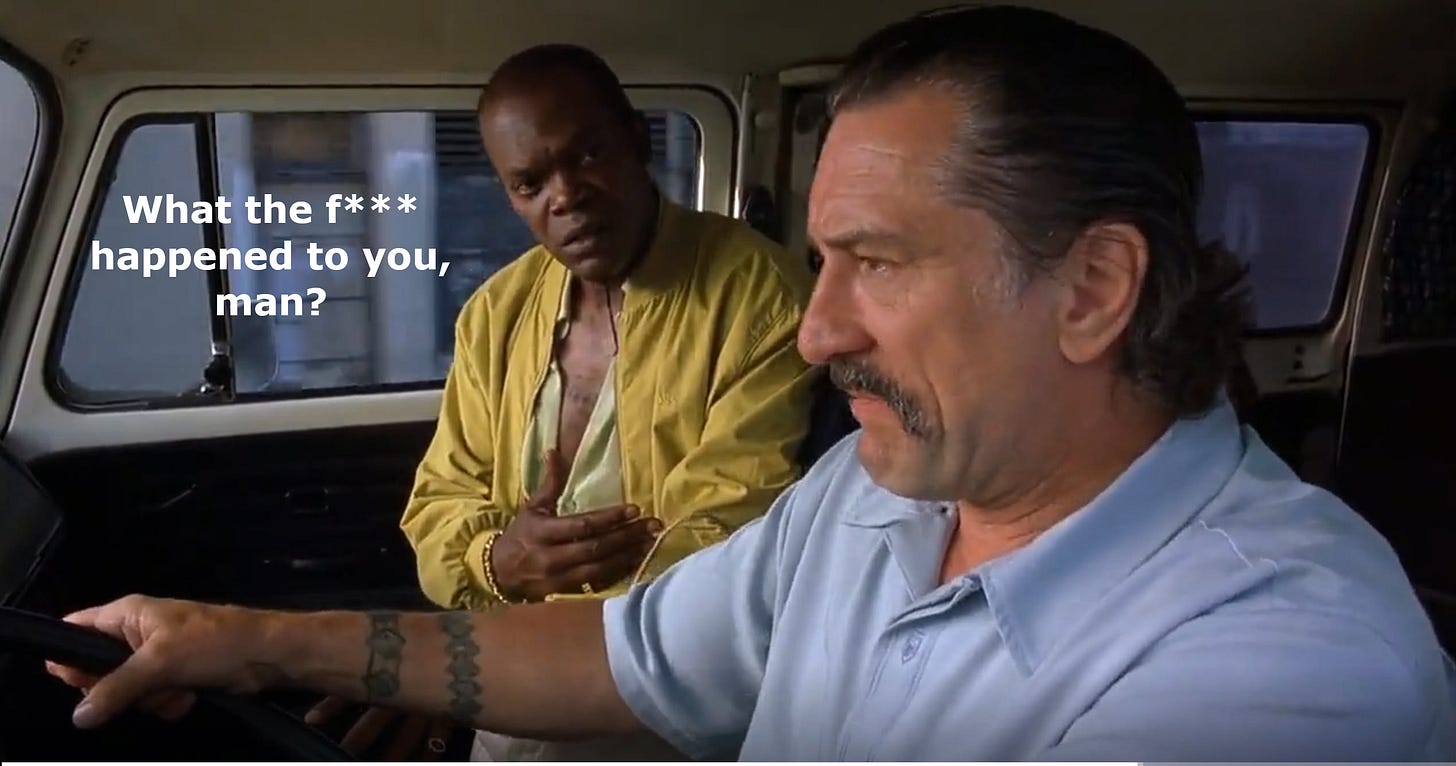
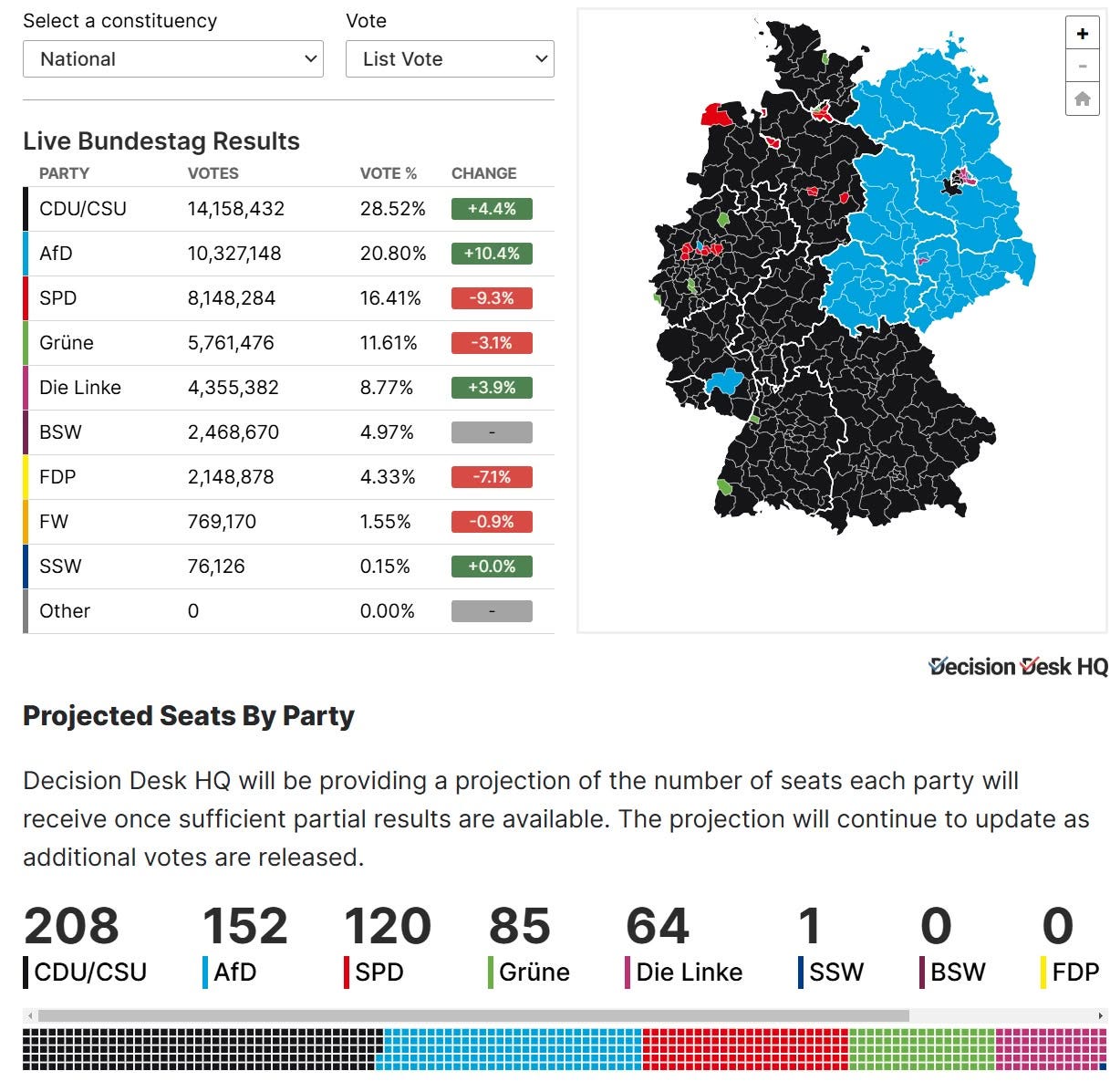


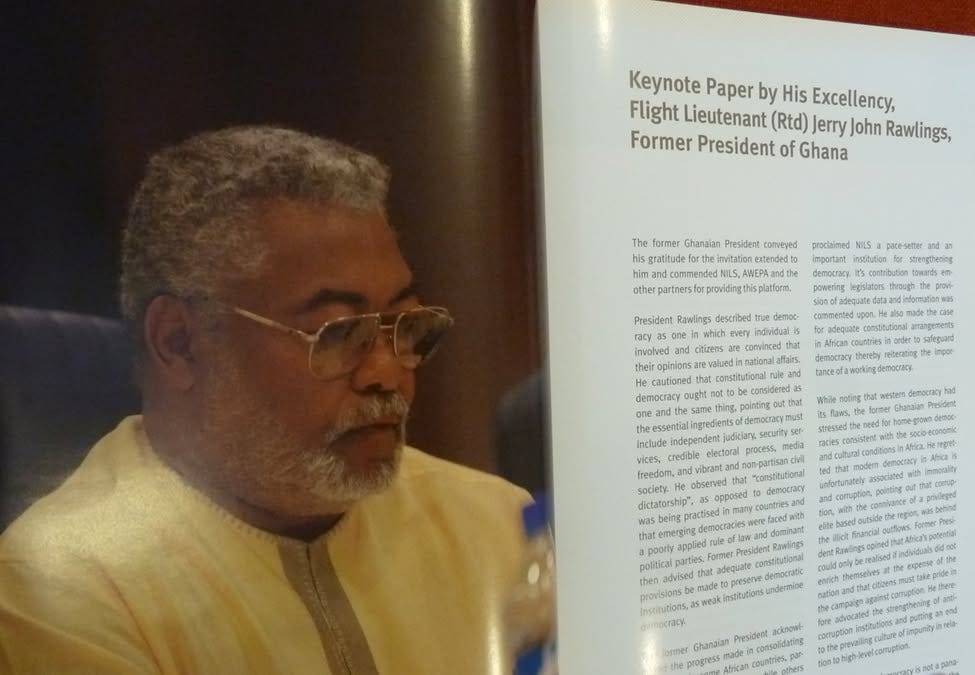
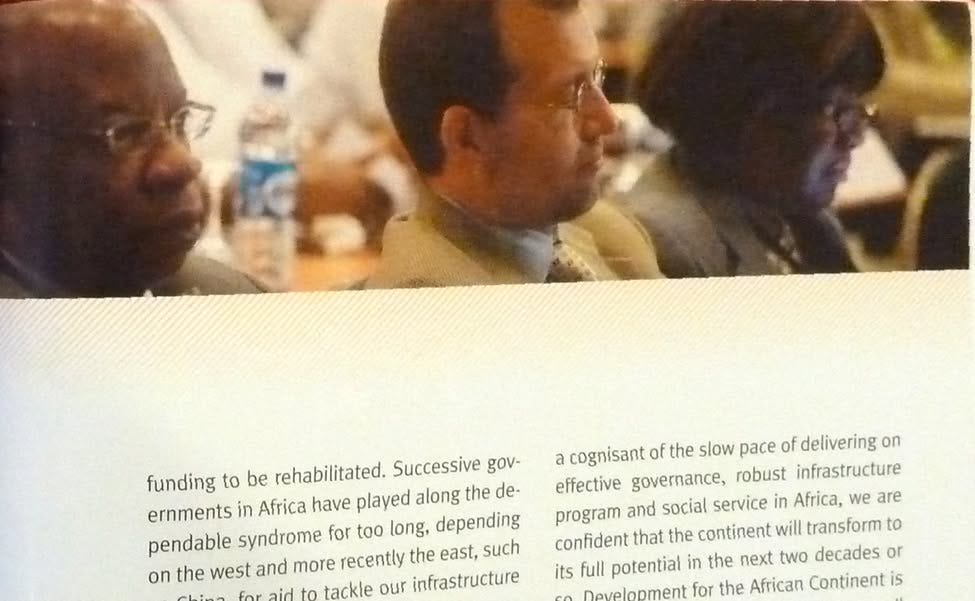
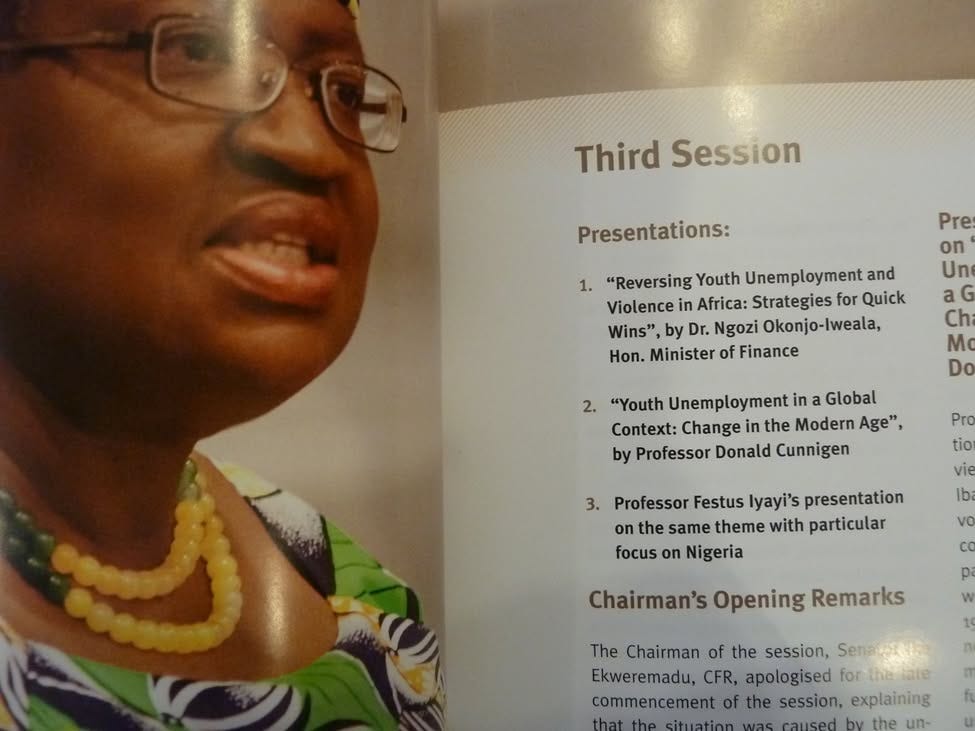
What's your take on Irish sympathy for Palestine? Understandable? Wrong-headed? I ask as an Irishman who has visited the West Bank and was appalled by some of the tactics employed there, whilst appreciating Israeli fears.
Doubt coexist is possible. So Islam must wait until we destroy each other. Germany showing intolerance for competition but tolerance for Islam.